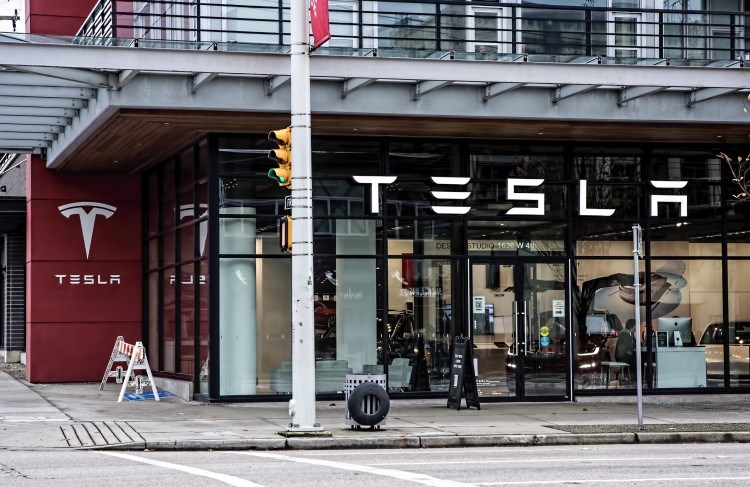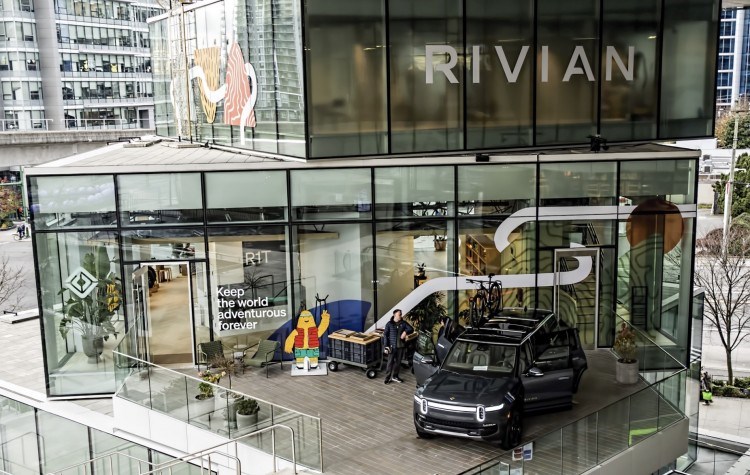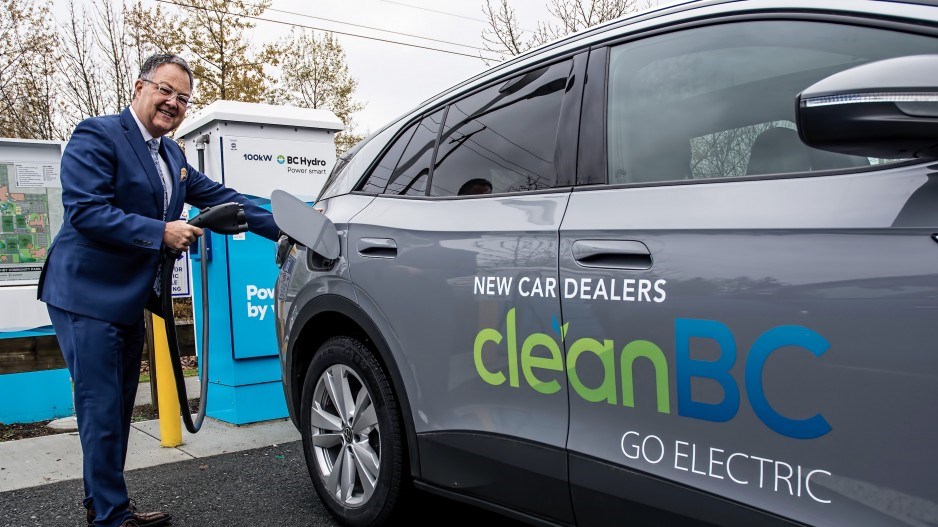Sales growth for electric vehicles (EVs) in B.C. has been brisk enough for the province to rank No. 1 in North America for the proportion of vehicles sold that have zero emissions.
Industry insiders say growth may slow in the near term but the province will see a rapid uptick in drivers transitioning to those vehicles – likely between five and 15 years from now.
There are clashing views, however, on whether B.C.’s timeline for when to start implementing fines on manufacturers for selling new gas-guzzling vehicles is so aggressive that it could spur unintended consequences.
Despite inflation and comparatively high interest rates crimping car buyers’ budgets, the provincial government has set 2035 as its target date for when all new light-duty vehicles sold in B.C. are to be electric or plug-in hybrid. Otherwise, steep penalties kick in.
Unlike broad and fuzzy goal setting for reducing carbon emissions, the B.C. government’s target for eliminating internal-combustion vehicles is clear, and potentially painful.
Premier David Eby’s government introduced legislation in October that forces automakers to meet escalating annual targets for the proportion of their overall vehicle sales that are light-duty, zero-emission vehicle sales and leases within the province.
The legislation puts into law Victoria’s aspiration to have 10 per cent of vehicle sales be EVs, or plug-in hybrids, by 2025 and 26 per cent by 2026.
The mandate then rises to 90 per cent by 2030 and 100 per cent by 2035.
Any automaker that does not meet those percentages for their own sales in the province by those designated years is set to face fines equal to more than $20,000 on each vehicle sold above that threshold, New Car Dealers Association of British Columbia president and CEO Blair Qualey told BIV.
“There are huge penalties for not meeting those ratios so, clearly, a manufacturer is not going to do that,” he said.
Those fines could bump up the cost of internal-combustion vehicles by about one-third, or more, Qualey explained. That would make selling those vehicles less likely, he added.
University of British Columbia Sauder School of Business associate professor Werner Antweiler agreed with Qualey that B.C.’s slated fines are steep enough to make it unprofitable for most automakers to fail to meet the government’s legislated proportions of EV sales.
“The manufacturers could cross-subsidize [the fines] across the entire fleet that they sell, but only when they make a premium,” he said.
“You will still see Lamborghinis and Maseratis (NYSE:STLA) on the streets. Some super-premium vehicles will continue to be gasoline powered because the extra $20,000 cost won’t bother some people.”
Ferrari (NYSE:RACE) and other supercar makers plan to produce electric or hybrid-plug-in sportscars, as do other manufacturers, but they also plan to keep making gas-powered vehicles.
The problem with the strategy of aggressive government targets for reducing gas-powered vehicle sales is that automakers could meet the threshold, and have the specified proportion of their B.C.-based inventory powered by electricity, but supply constraints could mean that they are not able to supply sufficient volumes of EVs.
That would create a scarcity of all new vehicles for sale in B.C. – EVs and gas-powered ones.
“This isn’t a smart policy, and it won’t have the intended effect that B.C. hopes it to have,” Brian Kingston, CEO of the Canadian Vehicle Manufacturers Association, told BIV.
“If the targets are too aggressive, and they don’t respond to current market conditions, what happens is that there will be a reduction in vehicle availability in the market, and prices will increase.”
Kingston represents automakers who manufacture vehicles in Canada, while David Adams is CEO of the Global Automakers of Canada, and the voice in Canada of vehicle makers based around the world, the majority of which do not make cars in Canada.
Adams agreed with Kingston and called B.C.’s targets “unrealistic,” particularly the one to have 90 per cent of all new vehicles sold in the province to be electric or plug-in hybrid by 2030.
“The 90-per-cent target by 2030 is the most aggressive in North America,” he said. “We question where that number came from, and why it’s been set.”
He holds out hope that a B.C. government in the lead-up to 2030 will alter that legislated target. BC United leader Kevin Falcon earlier this month promised to scrap the Eby government's CleanBC plan, which includes the targets for EV sales, if his party wins the election set for next October.
Steep monthly payments, economy set to crimp electric-vehicle sales
When most people shop for new cars, the biggest determinant is usually the upfront cost, according to those in the industry.
“I can’t emphasize this enough,” Tesla Inc. (Nasdaq:TSLA) CEO Elon Musk said on his company’s Oct. 18 conference call. “[For] the vast majority of people, buying a car is about the monthly payment.”
EVs continue to cost more than counterparts with internal-combustion engines – often 20 per cent more – even though the costs to operate them over their lifetimes tends to be less.
Nonetheless, according to Musk, EVs’ steep initial costs are a deterrent for consumers because inflation and higher interest rates have cut into discretionary-spending budgets. That makes it tougher for him to sell cars.
“I am worried about the high-interest-rate environment that we are in,” he stressed on his conference call, which followed an earnings report in which Tesla missed Wall Street analysts’ estimates.
Adams agreed that monthly payments are a top consideration for auto buyers, and that tough economic times make it harder for other manufacturers to also sell EVs.
“People’s budgets are pinched right now,” he said.
“We’re at a time when not only B.C., but the federal government is looking to introduce a national zero-emission vehicle mandate. It just seems ill-timed.”
Signs that EV sales are slowing include Mercedes-Benz Group AG (OTC:MBGYY) and Volkswagen AG (OTC:VWAGY) recently discussing slowing EV sales, while Ford Motor Co. (NYSE:F) and General Motors Co. (NYSE:GM) have announced plans to slow spending on EV-related initiatives.
Companies that make component parts for EVs, such as ON Semiconductor (Nasdaq:ON) and battery-maker Panasonic Holdings Corp. (OTC:PCRFY), have also forecast weak sales guidance to investors.
Charging fears remain another deterrent in selling EVs
Drivers are also reluctant to buy EVs because they fear that they will not be able to find a place to charge them, and that they will be left stranded on roadsides.
Data from Natural Resources Canada and National Renewable Energy Laboratory show that there has been a levelling off in the past couple years at about 5,000 public EV charging stations in B.C.
A BC Hydro-administered incentive program has helped create more than 11,000 private charging points, according to Antweiler’s research.
Single-family homes, row homes and duplexes are eligible for rebates up to 50 per cent of the purchase and installation costs of an eligible Level 2 electric-vehicle charger, to a maximum of $350.
Strata buildings can get rebates too: Up to 50 per cent of the costs up to a maximum of $2,000 per charger, to purchase and install Level 2 networked EV chargers at parking spaces within condominium buildings, to a maximum of $14,000 per building complex.
“In most cities, about 30 to 40 per cent of the population don’t live in single-family dwellings, so you’re left with a situation where you have to try to convince strata, or condo, boards to put in the infrastructure,” Adams said.
To that end, the B.C. government this year launched changes to its Strata Property Act, which all strata corporations must follow.
It lowered the voting threshold to 50 per cent from 75 per cent to approve costs, and changes to property that are necessary to install vehicle chargers.
It also newly requires strata corporations to have electrical-planning reports to make installing charging stations easier.
Debate continues on whether financial rebates are sufficient
Governments have long used financial rebates to lure people to buy electric vehicles.
B.C.’s CleanBC EV rebate program gives residents who earn up to $80,000 annually rebates totalling $4,000 each if they buy EVs, and totalling $2,000 if they buy a plug-in hybrid vehicles.
When those rebates combine with $5,000 federal rebates, eligible residents can get a total of $9,000 off purchases.
“There are lots of complications in the rebates,” Antweiler said. “[But] they are generous subsidies.”

Adams and Kingston, however, are urging B.C. to have bigger rebates because the gap in price between EVs and combustion-engine vehicles remains large.
“The rebates are not large enough,” Adams said.
“It would also be better if the incentive wasn’t income tested. There seems to be an assumption that if people are rich they’re going to buy an electric-vehicle anyway. I’m not sure that’s the case.”
EV sales in B.C. are, however, disproportionally in urban areas, where incomes are higher.
Antweiler sent BIV data that he compiled using U.S. National Highway Traffic Safety Administration vehicle-identification-number data, as well as information from the Insurance Corp. of British Columbia.
His read of that data is that about 4.5 per cent of vehicles on B.C. roads are EVs, or plug-in hybrid vehicles. Another data point is that more than 21 per cent of all new vehicles sold in B.C. are EVs, or hybrid plug-in vehicles.
Wealthier areas disproportionally have more, according to Antweiler’s research.
He broke down his data by postal code and found that the B.C. city with the highest share of electric vehicles is West Vancouver, with 9.58 per cent. The next highest municipalities for electric-vehicle adoption, according to Antweiler’s research, are Salt Spring Island (7.46 per cent), North Vancouver District (7.27 per cent) and Port Moody (6.66 per cent).
“At the bottom of the list are places that include Quesnel, Northern B.C., Dawson Creek, Chilcotin or the Atlin Region,” he said.
To help those on the lower end of the income spectrum, the B.C. government also provides the incentive of not charging Provincial Sales Tax (PST) on transactions for used EVs until 2027.
Antweiler said he believes a flat dollar-denominated rebate is a better strategy to encourage sales for new electric vehicles than by waiving the PST, which would disproportionally subsidize more expensive vehicles.
“If there’s a need for incentives, we have to target them specifically to where they actually have the largest impact on EV uptake, which would be in lower-income households” he said.
“Once we have significant uptake, the incentives will shrink because the batteries will get cheaper and the price gap [between EVs and gas-powered vehicles] will shrink.”
BIV could not find data to determine market share by manufacturer for EVs in the province. Industry insiders estimated to BIV that most EVs on B.C. roads continue to be made by Tesla, although that automaker’s majority share is on the decline.
B.C. government data for 2022 show that the EV models that received the most rebates were the Tesla Model 3, followed by the Chevrolet Bolt, Hyundai Kona, Hyundai IONIQ 5, and BMW’s Mini Cooper BEV.

Competition is ratcheting up for Tesla, which was the first EV-maker to open a retail showroom in Vancouver – in 2014 on Robson Street. That store has since closed but Tesla operates showrooms in West Vancouver, Richmond and on Vancouver’s West 4th Avenue.
Lucid Motors opened its first Canadian location at Vancouver’s CF Pacific Centre in 2021. Vietnamese-based VinFast then opened its first Canadian showroom at West Vancouver’s Park Royal Shopping Centre in April.
Rivian is the newest EV-selling kid on the block. It opened its first Canadian showroom, at Burnaby’s Amazing Brentwood, in July.





